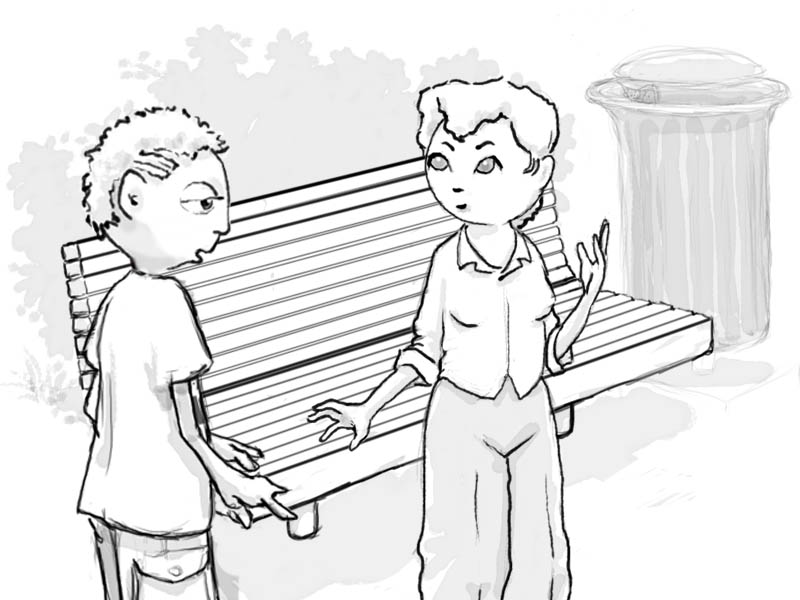Putting It All Together
Possible Reasons for Conflict
 We are becoming a global society. However, even while we benefit from increasing diversity, our differences create more opportunities for conflict:
We are becoming a global society. However, even while we benefit from increasing diversity, our differences create more opportunities for conflict:
- Have you ever heard an older person talk about "what's wrong with the youth of today?"
- Have you heard older folks talk about the lack of a "work ethic" in young people?
- Have your parents ever criticized your hair or clothing?
- How about young people criticizing their elders?
- Ever thought someone older than you was inflexible or rigid?
- Ever thought someone older was out of touch with today?
In today's world, we're working in teams more frequently. There are teams in the classrooms and teams in the workplace. Collaboration is happening everywhere. Unfortunately, when people work closely together, conflict can frequently occur.
When people work closely together, they also get to know each other better. Sometimes when you know people on a deeper level, some of the things they do get on your nerves, and the next thing you experience is conflict.
Student Dialog - "Handling Different Conflict Situations"
 Deena: I think we should take the time now and review what we have learned about conflict management. So, what can we do to manage conflict? What are the five conflict-handling modes?
Deena: I think we should take the time now and review what we have learned about conflict management. So, what can we do to manage conflict? What are the five conflict-handling modes?
Brian: You mean like "Avoiding" and "Accommodating?"
Deena: Listening to you makes me think of "Competing." Remember when Heather first joined the group? I sort of felt like she was competing for Lori's place in our group.
Brian: And "Compromising." Sometimes I think we give in to each other too easily. Sort of like an easy way out. But I also like to think we are "Collaborating." You know, being highly assertive and highly cooperative.
Deena: Yeah. But is it the best way to manage the conflict that occurs?
Brian: While we don't agree on everything, we are learning to get along better.
Deena: We have our different viewpoints, but are expressing them better. The more we practice conflict management, the better we get at it.
Brian: Applying good listening skills with conflict management skills really puts us on a successful path with our research assignment. Good communication and managing conflicts should help us get to where we need to go sooner.
Deena: I agree, but we have just looked at one method of managing conflict. I think the main point is to recognize when conflict occurs and do something before it becomes a problem.
Every Situation is Different
As you know, there is no one right way to handle conflict every time. Each situation may call for a different way to manage disputes. The more you practice managing friction in a group, the better you'll become. When you combine conflict-handling techniques with some of the communication skills you've already learned, like body language techniques, listening skills, not interrupting, acknowledging feelings, and providing good feedback, you'll be on the way to effective conflict management.


